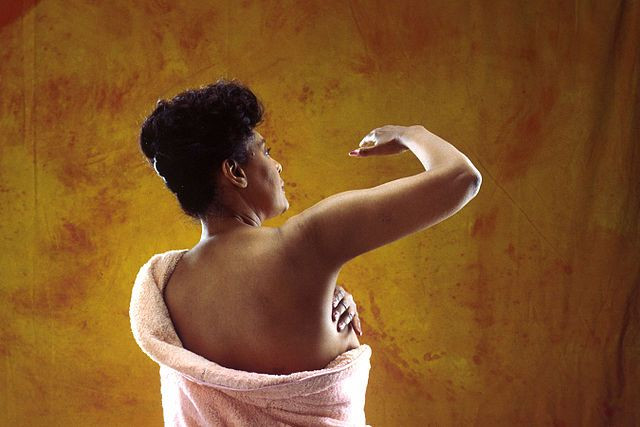Herceptin, Breast Cancer Drug, May Cause Heart Troubles For Some Older Women Patients

Herceptin (trastuzumab) was originally approved by the U.S. Food and Drug Administration (FDA) in 1998 as part of a treatment regimen for women with certain types of breast cancer. Now, two recently published studies — one large and one small — have found Herceptin to increase the risk of cardiac events among some older patients.
What is Herceptin?
Herceptin is a drug made by Genentech, one of the original biotechnology companies that became a member of the Roche Group in 2009. Biotechnology is the use of biology (living systems and organisms) to develop or make useful products. In particular, Genentech uses human genetic information to discover, develop, manufacture, and commercialize medicines that treat serious or life-threatening conditions.
Herceptin, a clear to light yellow fluid, is generally used during or after chemotherapy and administered by intravenous infusion (a drip into a vein). Herceptin is used to treat breast cancer that is HER2-positive — about one of every five breast cancers. HER2-positive means the cancer cells have tested positive for the human epidermal growth factor receptor 2, a kind of protein that promotes the growth of cancer cells. Herceptin locks onto the HER2 on the surface of cancer cells and may either kill or block them from working. Herceptin is also sometimes used to treat HER2-positive stomach cancers and is currently being studied for treatment of other types of cancer.
Since it gained FDA approval, Genentech has presented Herceptin as having an association with heart problems, “including those without symptoms (reduced heart function) and those with symptoms (congestive heart failure).”
First Study
Acknowledging “the use of trastuzumab in the adjuvant setting improves outcomes,” researchers from the University of Texas MD Anderson Cancer Center sought to investigate the rates and risk factors associated with trastuzumab-related congestive heart failure (CHF) among older patients.
Using both the SEER-Medicare and Texas Cancer Registry-Medicare databases, the researchers identified those breast cancer patients who were at least 66 years old, diagnosed with stage I-III breast cancer between 2005 and 2009, and treated with chemotherapy. Next, the researchers investigated the chemotherapy administered to each patient as well as trastuzumab use, comorbidities, and CHF. In total, they identified 9,535 patients, their median age 71 years old, as pertinent to their study. Of these, 2,203 (almost one quarter or 23.1 percent) had received trastuzumab.
Crunching the numbers, the researchers discovered that, among trastuzumab users, the rate of CHF was 29.4 percent compared with 18.9 percent in non-trastuzumab users. Among trastuzumab-treated patients, older age (meaning older than 80), coronary artery disease, hypertension, and weekly trastuzumab administration increased the risk of CHF.
“In this large cohort of older breast cancer patients, the rates of trastuzumb-related CHF are higher than those reported in clinical trials,” wrote the authors in the study. “Among patients treated with trastuzumab, those with cardiac comorbidities and older age may be at higher risk.”
Second Study
Israeli Researchers at the Division of Oncology in Rambam Health Care Campus also chose to investigate Herceptin’s potential for ‘cardiac toxicity.’ Noting that trastuzumab is considered “a cornerstone in the treatment” of HER2-positive breast cancer, they conducted a retrospective study on patients with early-stage breast cancer, who had been treated with chemotherapy and trastuzumab between 2005 and 2010. Of the 124 patients studied, the range of ages spanned 29 to 70 years old, with a median age of 51. Surveying echocardiography information and treatment protocols for each patients, the researchers recorded a cardiac event (CE) in cases where a patient's left ventricular ejection fraction reduction was greater than 10 percent when compared to her first echocardiogram taken before treatment. These CEs, then, may have been 'symptomless' events, though significant nevertheless.
Of the total patients, the researchers identified 26 (21 percent) as experiencing a CE. The researchers found treatment-related risk factors to include age and interval time for one particular chemotherapy regimen. Herceptin dose, whether 8 mg or 4 mg, did not influence CE rate. Those patients who had received radiation treatment on the left (near their hearts) (45 percent) showed significantly increased rates for a cardiac event: 31.4 percent versus 15.4 percent among those patients who did not undergo radiotherapy.
“The presence of any cardiac risk factor caused a trend toward increased risk, not statistically significant,” wrote the authors. “No connection was found between possible cardioprotective drugs and reduced rates of toxicity.”
Sources: Chavez-Macgregor M, Zhang N, Buchholz TA, et al. Trastuzumab-Related Cardiotoxicity Among Older Patients With Breast Cancer. Journal of Clinical Oncology. 2013.
Fried G, Regev T, Moscovitz M. Trastuzumab-related cardiac events in the treatment of early breast cancer. Breast Cancer Research and Treatment. 2013.



























